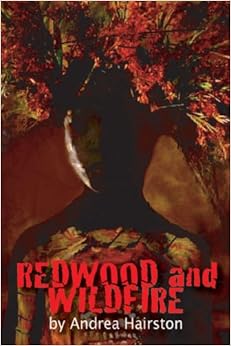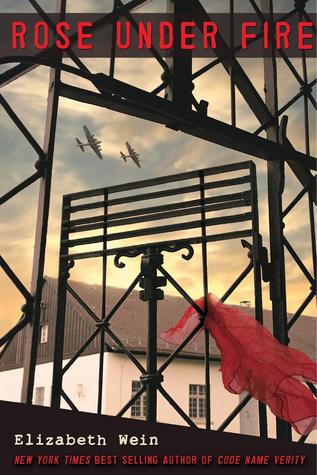
I usually don't like trying to define a story in just a few words. In most cases I feel like it detracts or minimizes the subtleties and subplots of a novel, oversimplifying the intricacy of the writing. But in the case of "Redwood and Wildfire" by Andrea Hairston, I found that I need to reduce the book down to a few words just to start organizing my thoughts. And what those came to were family, love, self, and magic.
Redwood Phipps is a hoodoo woman like her mother Garnet, who was lynched one night in order to save her family and the rest of colored Peach Grove from night riders. Georgia in 1898 isn't an easy place to be any kind of person of color, whether they're black, native American, or any combination thereof. Still Redwood and her older brother George, their younger sister Iris, and their extended family soldier on. George has an angry spirit, always fighting against his situation in life, and Iris shows signs of one day growing into a powerful hoodoo woman. But Redwood's real friend and confidant is Aidan Cooper, "Crazy Coop," the drunk Irish-Seminole farmer whose penchant for moonshine is in constant danger of ruining his farm and possibly killing him as well. Aside from Redwood's company Aidan's only solace lies in the music he plays on his banjo, an instrument with which Redwood insists he has his own kind of magic.
Healing one another while the ghost of Redwood's mother looms large over them both, something more might have arisen between Redwood and Aidan. But violent tragedy strikes before either one of them can sort out their feelings. Redwood is forced to flee Peach Grove, heading north toward Chicago where her brother George set off for years ago. Aidan is left behind to cover her trail and try to take care of Redwood's aunt, uncle, many cousins, and sister Iris. But the ghost of Garnet Phipps still tugs on them both, pulling them back together by their heartstrings across time and distance. When there's nothing left for them in Peach Grove save memories and scars, Aidan and Iris make their way north to Chicago, hoping to somehow find Redwood and reunite with her.
But the life that Aidan and Redwood once imagined with one another is no longer a possibility; time has changed them both, molded them into new people in a new world far from the swamps of Georgia. Marked by tragedy, Redwood no longer trusts her hoodoo heritage or the power that she wields with it. Aidan struggles to embrace the Seminole heritage of which he was always taught to be ashamed, while reconciling that identity with the "Red Man" image that most of the country has of that culture. Their inner struggles will determine not only who they are in the end, but whether or not those people are still capable of loving each other in any way but at a distance.
Andrea Hairston has a rare talent for writing both plays and novels, and her affinity for both formats really shines through in the way she's able to make the reader truly see the story in "Redwood and Wildfire." Her visceral descriptions of everything from the bright, hot swamps of Georgia to the smell of Chicago at the turn of the century make the story come alive. I didn't just hear the characters speak; I watched their lips move. But concrete images and sensations weren't the only things that Hairston's writing really brought off the page; the raw emotions experienced especially by Redwood and Aidan are meticulously brought forth in all their beautiful agony. How do you love and accept yourself when the rest of the world sees that part of you as just another stereotype? How do you reclaim your confidence when there's no way to fill the hole that something left in your heart? Sometimes the world keeps going forward, dragging you along with it, even when you're lost and stumbling. And the only way to regain your footing is to try and catch up with it.
Hairston doesn't just use her affinity for screen writing to shape a touching novel; she includes her love of film and script in the story itself. Her depictions of the early years of the film industry, who was involved in it and in what context, and how entertainment for different ethnic groups changed as a result of film. It's a mini history, culture, and film studies lesson in the middle of a great novel. There was a short time between Redwood's arrival in Chicago and her undertaking to make a film that felt a little bit directionless to me, but then again that sentiment mirrors Redwood's lack of direction and Aidan's sense of being lost. Other than that brief portion, I was hooked on this story from beginning to end.
If you're interested in historical novels that deal with cultural identity, hoodoo, and the journey to rediscover one's self after the unthinkable happens, this is a novel that you can't afford to miss. It's a story about race, yes, but it's more about what that means for family and for self-perception, for either accepting who you are and become or choosing to embrace something else. Its wonderfully rich characters and ever-changing scenery will keep you intrigued, and even after the last page you'll be sighing and smiling in hope for what the future will hold for Redwood and Aidan. "Redwood and Wildfire" by Andrea Hairston is available now from your local independent bookstore.
.jpg)
